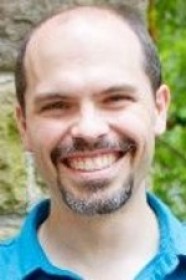
3:30 pm to 4:30 pm
Event Location: NSH 1305
Bio: I am a Senior Commercialization Specialist at the NREC and the CEO of Edge Case Research, a company I co-founded to help make autonomous vehicles and other complex software-based systems safer and more reliable. I have sixteen years of experience developing advanced robotic systems for industry, the Department of Defense, and NASA. Since 2006 my work has focused on building safer robots and researching ways for evaluating whether we are justified in trusting autonomous technologies. Toward this end I manage the Automated Stress Testing for Autonomy Architectures (ASTAA) project at NREC. Previously I served as the system-safety lead on the Autonomous Platform Demonstrator (APD) vehicle, the Hybrid Safety System, and Tartan Rescue. I also have experience building robots that operate in the most extreme environments on Earth. Between 1999 and 2006, I led software implementation for five field expeditions at the Field Robotics Center at Carnegie Mellon. On the Robotic Antarctic Meteorite Search project I helped build the autonomous meteorite-seeking robot called Nomad. I was awarded an Antarctic Service Medal for six weeks of field work on the project. Between 2000 and 2006, I designed control, localization, and perception systems for the Hyperion and Zoë rovers. During this time I also integrated a novel fluorescence imager that enabled the Zoë rover to autonomously detect life in the Atacama Desert in Chile.
Abstract: For decades, our lives have depended on the safe operation of automated mechanisms around and inside us. The autonomy and complexity of these mechanisms is increasing dramatically. Autonomous systems such as self-driving cars rely heavily on inductive inference and on complex software, both of which confound traditional software-safety techniques that are focused on amassing sufficient confirmatory evidence to support safety claims. In this talk I survey methods and tools that, taken together, can enable a new and more productive philosophy for software safety that is based on Karl Popper’s idea of falsificationism.
